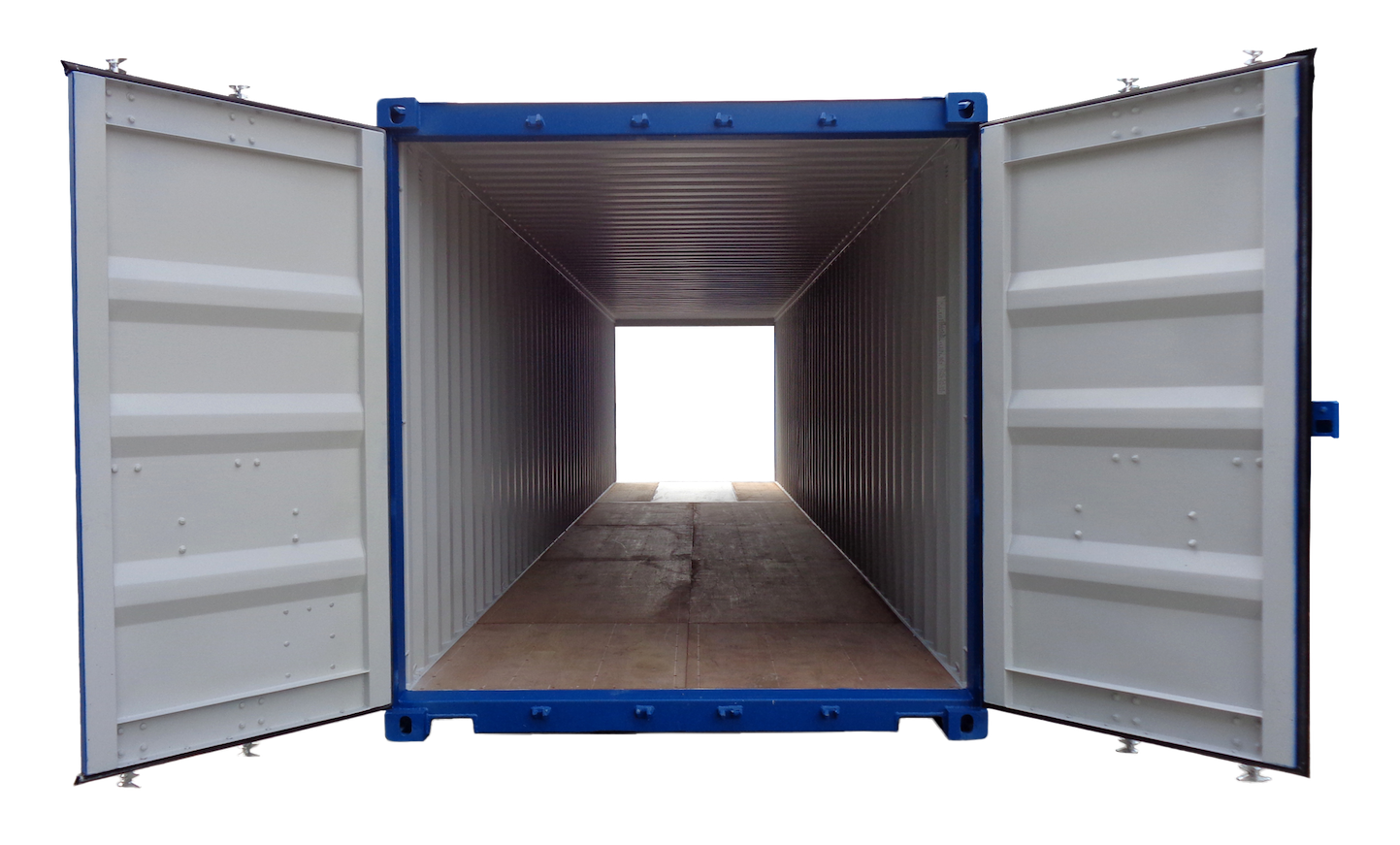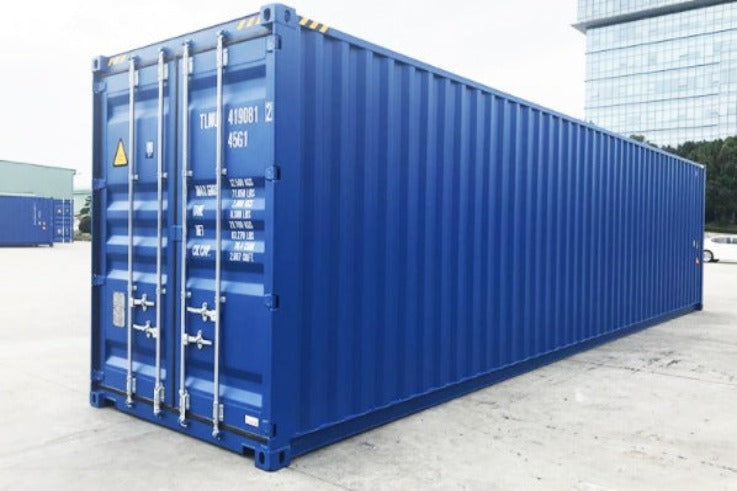Is a New Shipping Container 40 x 8 x 9.6 Right for Your Backyard Studio?
Is a New Shipping Container 40 x 8 x 9.6 Right for Your Backyard Studio?
Blog Article
The Ultimate Guide to Picking the Right Delivery Container for Your Demands
When it concerns selecting the ideal delivery container, comprehending your details needs is essential. You'll intend to think about elements like size, kind, and product to ensure you make the very best choice. From standard sizes to specialized choices, there's a lot to explore. And also, budgeting for both the container and any modifications can make a big distinction. Allow's break down the vital facets to aid you discover the excellent fit for your demands.
Comprehending Delivery Container Sizes
When you're choosing a delivery container, understanding the numerous sizes available is critical for making the ideal decision. Shipping containers generally come in typical lengths of 20 and 40 feet, however you'll additionally discover other measurements. Recognizing the size you need depends upon what you prepare to store or transport.If you're relocating smaller sized items, a 20-foot container might be suitable, while bigger shipments commonly call for a 40-foot container. The elevation can additionally vary; high cube containers offer extra upright space, which can be advantageous for taller goods.Before choosing, measure your freight, and consider how much space you'll require for loading and discharging. Always factor in prospective future needs-- choosing a slightly larger container might conserve you trouble down the line. Inevitably, choosing the ideal size will boost efficiency and guarantee your things are protected throughout transit
Types of Shipping Containers Available
There are several kinds of shipping containers offered, each designed for details functions and freight demands. The standard completely dry container is functional, best for basic freight. If you're shipping perishable items, consider a chilled container, which preserves a regulated temperature level. For large items, high cube containers use added height, suiting taller loads.If you need to transfer hefty equipment or tools, level rack containers offer a strong base without walls. Open-top containers enable for simple loading of high freight, with a removable tarp covering for defense. If you're trying to find adaptability, think about a collapsible container that can be easily stored when not in use.Lastly, specialized containers like tank containers are used for liquids, while vented containers are created for bulk freight that requires ventilation. Knowing your cargo kind will help you pick the best container to fulfill your shipping needs successfully.
Product Factors To Consider for Sturdiness
When selecting a delivery container, the product plays an important duty in its toughness. You'll intend to weigh the benefits of steel versus light weight aluminum, particularly concerning deterioration resistance. Comprehending these variables can assist you make a much more informed option for your delivery requires.
Steel vs. Light weight aluminum Containers
Just how do you choose in between steel and light weight aluminum containers for your shipping needs? Beginning by considering resilience. Steel containers are robust and deal exceptional stamina, making them perfect for hefty loads and harsh conditions. They resist damages from influences and are often cheaper, which can be a major factor for budget-conscious buyers.On the various other hand, aluminum containers are lightweight, which can save you on shipping prices. They're less complicated to navigate and are a terrific choice if you require to transfer goods regularly. Nevertheless, light weight aluminum is generally more pricey and less durable than steel. Weigh your details requirements very carefully, consisting of weight, expense, and the kind of freight you'll be shipping, to make the best selection for your circumstance.
Rust Resistance Aspects
Selecting the appropriate product doesn't just entail weight and cost; rust resistance plays a considerable function in longevity. When choosing a delivery container, think about the environment it'll encounter. Steel containers, while solid, can corrosion if not properly dealt with. Look for choices with protective layers or galvanization to boost their life expectancy. Aluminum, on the other hand, uses natural corrosion resistance, making it excellent for seaside areas or moist problems. However, it can be a lot more pricey. Furthermore, evaluate the container's use-- if it'll be revealed to chemicals or harsh climate, focus on products that can hold up against these conditions. Investing in a corrosion-resistant container now can save have a peek here you from costly repairs or substitutes down the line. Choose intelligently for lasting advantages.
Alterations and Personalization Options
Shipping containers aren't just for delivering goods; they can be transformed to satisfy your particular demands via different adjustments and modification alternatives. You can convert a conventional container right into a comfy workplace, a short-term retail shop, or perhaps a personal gym. The possibilities are virtually endless.Think concerning adding windows, insulation, or ventilation to boost convenience. You might additionally take into consideration electrical wiring, pipes, and even custom-made shelving to improve functionality. If protection's an issue, enhanced locks can offer peace of mind.For visual allure, you can repaint the container or add an one-of-a-kind design to make it stick out. Don't forget about flooring options-- whether you desire sturdy plywood or something much more innovative, it can raise the space.Ultimately, tailoring your shipping container to suit your needs can improve usability and produce a distinct setting that reflects your design.
Analyzing Your Transportation Demands
When it concerns utilizing your changed shipping container, recognizing your transport requires is key. Beginning by determining what you'll be delivery-- whether it's heavy equipment, retail goods, or individual items. Each type of freight has different demands regarding size, weight, and accessibility.Next, take into consideration the distance and mode of transportation. Are you shipping in your area, country wide, or worldwide? This influences the container's style and capability. If you're making use of trucks, ensure your container fits common dimensions for simple loading and unloading.Additionally, consider transit conditions. Will your products require unique security from weather or temperature level changes? If so, you might require insulation or ventilation features in your container.Lastly, assess exactly how often you'll be transporting goods. Constant deliveries may call for a much more long lasting and flexible container to fulfill ongoing demands. By resolving these aspects, you'll be well-prepared to choose the ideal shipping container for your demands.
Budgeting for Your Shipping Container
Setting an allocate your shipping container is necessary for ensuring a smooth getting procedure. First, figure out just how much you can manage to invest. Prices can differ substantially based on dimension, problem, and kind. New containers generally cost a lot more, however used ones can offer significant savings.Next, consider any kind of added expenses you might sustain, such as transportation costs, shipment charges, and modifications. If you intend to personalize the container, consider those expenses too. Research different providers to contrast rates and locate the very best bargain that fulfills your needs.Don' t forget to include any kind of permits or regulations that might put on your acquisition and use of the container. click to read By clearly outlining your budget plan, you'll be much better prepared to make enlightened choices, guaranteeing you obtain the appropriate container without damaging the bank.
Upkeep and Take Care Of Longevity
To guarantee your shipping container lasts for many years, normal maintenance is vital. Begin by evaluating the outside for corrosion, damages, and damage. If you find any concerns, address them right away to avoid further degeneration. Tidy the container periodically, both throughout, to get rid of dust, debris, and dampness that can cause corrosion.Ensure the doors seal correctly and lubricate the hinges to stay clear of corrosion and sticking. If you're using the container for storage space, consider adding ventilation to decrease humidity and mold and mildew growth. For added security, apply a rust-inhibiting paint or sealant annually.If your container's situated in an extreme environment, like seaside areas, you might require to go now increase maintenance regularity. Maintain an eye on the floor covering, too; any kind of indicators of wear need to be fixed today. With these simple steps, you'll prolong the life of your shipping container substantially.
Frequently Asked Inquiries
Just how Do I Locate a Dependable Shipping Container Provider?
To find a reputable shipping container provider, start by investigating online testimonials, requesting referrals from close friends or sector calls, and comparing rates. Always inspect their credentials and guarantee they supply top quality containers that fulfill your requirements.

Can I Rent a Delivery Container Rather Than Acquiring?
Yes, you can absolutely rent out a shipping container as opposed to buying one. Numerous distributors offer rental choices, which can save you cash and supply flexibility if you only require it for a brief duration.
What Permits Are Needed for Container Placement?

Are Shipping Containers Weatherproof and Appropriate for Outdoor Storage?
Yes, shipping containers are usually weatherproof, created to stand up to severe problems. Their durable building maintains your products secure and dry, making them ideal for exterior storage space. Just guarantee appropriate ventilation to stop dampness accumulation inside.
How Do I Move a Delivery Container Once Bought?

Report this page